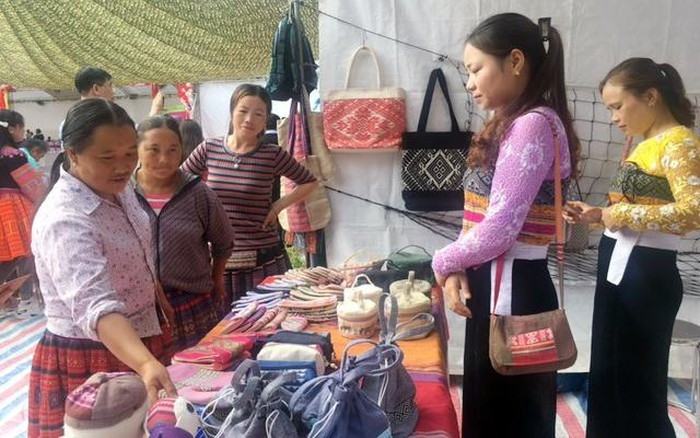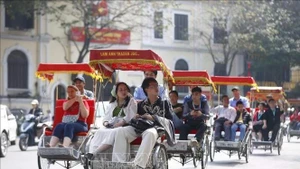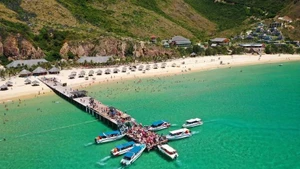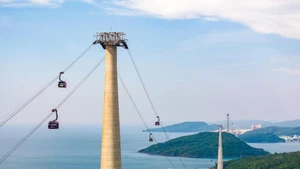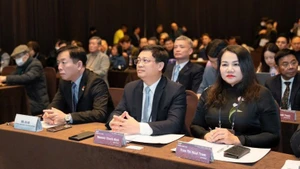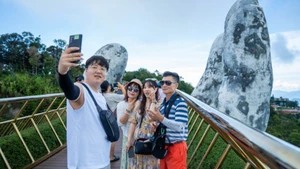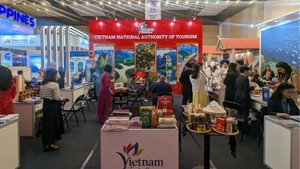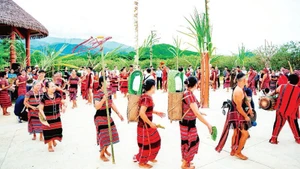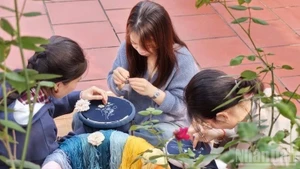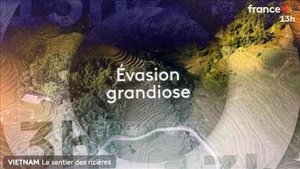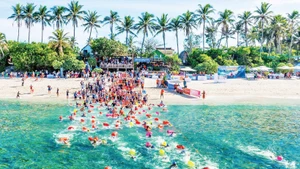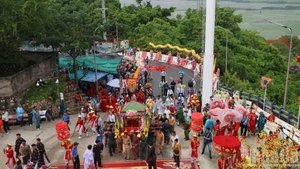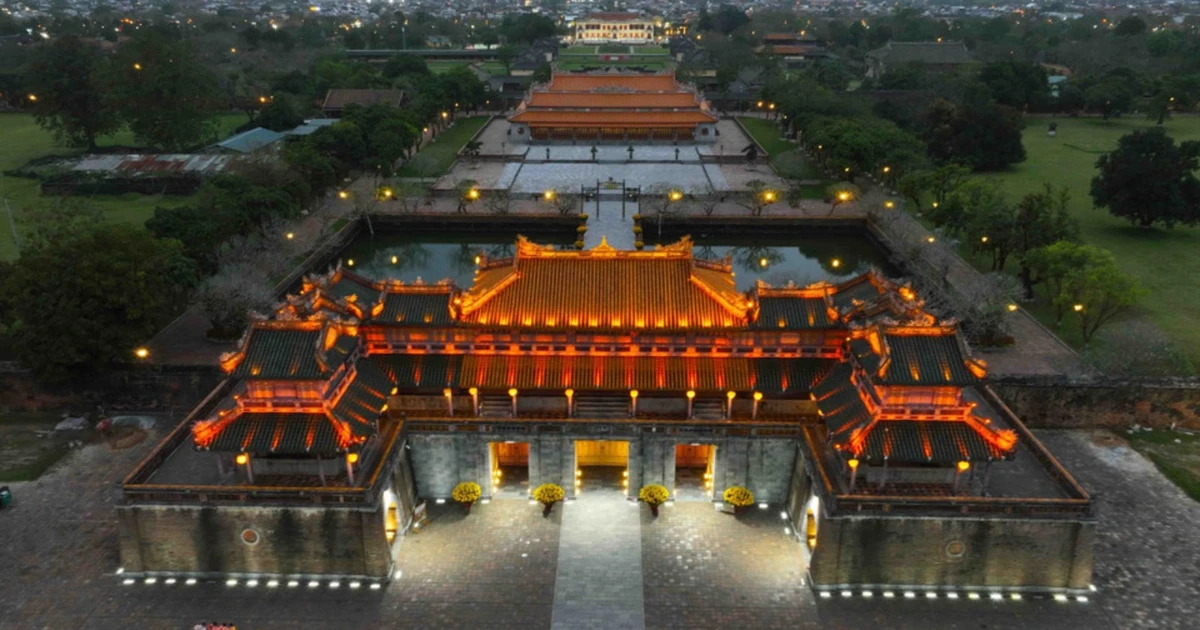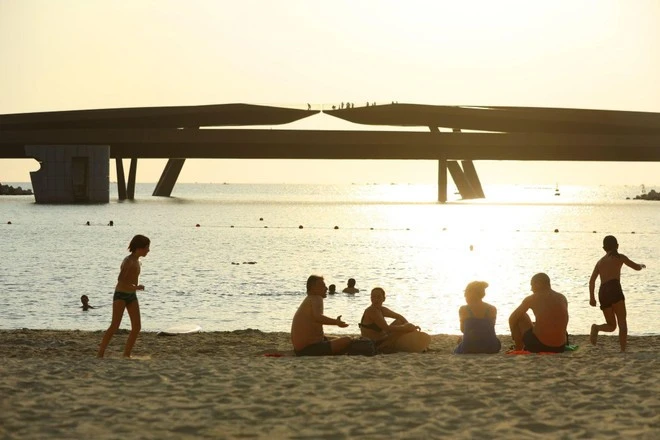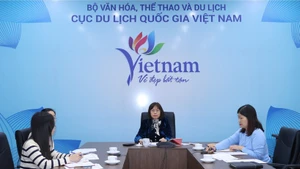Hoa Binh authorities and the agricultural sector have made efforts to turn the two communes into major tourist destinations of the province. Starting from the centre of Mai Chau district, it will take tourists about 30 kilometres crossing a mountain of about 1,200 metres above sea level to reach Pa Co commune and about ten kilometres further to reach Hang Kia. The images of green mountains, the houses of Mong ethnic people, small winding roads, tea plantations, stone fences and yellow always inspire photographers.
Going deep into the villages, visitors can see the Mong women who are diligently embroidering or the children playing and laughing. The firewood piled in the yard or the thin smoke from the roof of the kitchens will also bring a peaceful feeling to tourists.
In addition to the roads to villages, Hang Kia and Pa Co communes owns many destinations with intact beauty such as tea hills and plum gardens in Ta Xong A, Ta Xo and Thung A Lang areas. There are also many ideal sites on the mountains to contemplate clouds, including ‘Heaven's Gate’ and Pa Khom area. Standing on the Sam Tha mountain, visitors can see the view of Pu Luong peak in Thanh Hoa province and Pha Luong peak in Son La province.
Visiting Hang Kia and Pa Co communes, tourists will certainly want to learn and experience the traditional cultural identities and trades of Mong ethnic minority people, such as brocade weaving, indigo dyeing and beeswax painting. Visitors will be also attracted by local specialties, particularly corn wine, thang co (a dish made from horse meat and its organs), banh day (glutinous rice cake), chicken, pork and bamboo sprouts.
According to statistics, Mai Chau district welcomed around 332,000 visitors in 2018, including 5,000 and 6,000 to Pa Co and Hang Kia communes, respectively. Vice Chairman of Hoa Binh provincial People’s Committee Nguyen Van Chuong said that with dry seasons, fresh and cool air all year around, beautiful natural scenery and unique ethnic culture, Hang Kia and Pa Co communes have great potential to develop community tourism, attracting domestic and foreign tourists. The province will prioritise transforming two communes into major destinations.
In order to realise this idea, Hoa Binh provincial People’s Committee has held a tourism investment promotion conference in Hang Kia and Pa Co communes. Five approved investment projects included: Ta Xong A high-class eco-resort, To Xo eco-resort, Thung A Lang tourist area, Thung Man – Thung Ang ecological tourist area. The province’s leaders were pledged to create favourable condition for investors to successfully implement projects, ensuring the sustainable development of local tourism in the near future.
Chairman of Mai Chau district People’s Committee Dang Mai Son said that over the recent years, the local authorities have always contemplated how to raise income for people in Hang Kia and Pa Co communes. The development of eco-tourism and community-based tourism was determined to be an appropriate direction to develop the local economy while preserving and promoting the unique cultural values.
There are more visitors and travel agencies taking interest in Hang Kia and Pa Co commune; however, only four local households have developed community-based tourism combining with providing varying tourism services. Especially, their activities have been fragmented and spontaneous. The Mai Chau Tourism Steering Committee has recently held various meetings with local people to encourage potential households to develop homestay services and others to produce clean agricultural products to serve for tourism, changing the district's economic structure of agriculture into tourism and service. The households providing homestay services have been trained to improve business management skills as well as being supported with initial facilities such as blankets, drapes, beds and cabinets.
According to Deputy General Director of the Vietnam National Administration of Tourism (VNAT), Ngo Hoai Chung, Hoa Binh province should make specific policies for Hang Kia and Pa Co communes to create an attractive investment environment. It is crucial to set plans to upgrade infrastructure systems in terms of transportation, telecommunications, electricity, clean water and tourist guide systems, while outlining detailed plans for Hang Kia and Pa Co areas as a legal basis for investors. The VNAT will coordinate with travel businesses to form survey teams and tours to the communes as well as open training courses on tourism for the locals.
